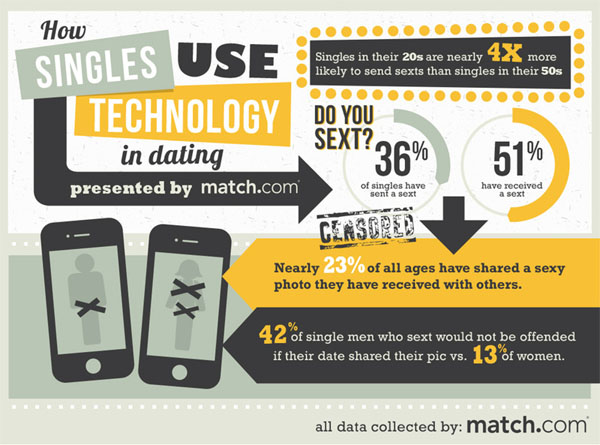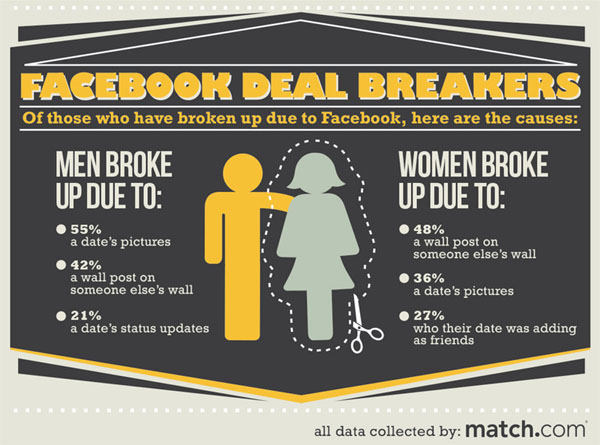Survey Reveals Sexual Habits of Singles in America
Leading online dating site Match.com has released findings from its third annual ‘Singles in America’ study – a national study of singles’ romantic dating habits, sexual practices, and lifestyles.
According to the company, prior to the first study in 2010, little thorough research had been conducted or shared on singles, a population that reflects one-third of the U.S. population (107 million singles, according to the most recent U.S. census).
The 2012 study debuts the inclusion of married individuals in order to gain a greater understanding of sex and love and to compare the lifestyles, attitudes and trends of singles versus married men and women.
[ Also Read: Do Women Prefer to Kiss Stubble or Shaven Skin? ]
Now in its third generation, the study reveals distinct trends as it continues to disprove long-held misconceptions associated with singles’ lifestyle choices and ideologies and documents the rising impact of technology in society.
Highlighted trends revealed by the study include:
- Friends with benefits: An emerging stage in (pre-commitment) romance? 47% of singles have had a friend with benefits relationship in the past (40% of women and 53% of men). With a drastic year-over-year increase, these arrangements are turning into long-term relationships more than ever before (2012: 44%, 2011: 20%).
- Despite the rise of casual sex in America, more women are insisting on commitment before intimacy with a new partner. Women increasingly want to wait until they are in an exclusive relationship before having sex with a partner (37% of single women in 2012, 31% in 2011, and 25% in 2010).
- The struggling economy is not dramatically affecting people’s dating patterns. Nearly 2/3 of singles say they have not changed their dating habits over the last three years (2012: 57%; 2011: 60%; 2010: 61%).
- Think you’ll meet your next date at a bar? Think again. Connecting online ranks #1 amongst places where singles meet. A historically unprecedented number of single Americans are now turning to the Internet to find love: nearly 1/3 of singles (27.5%) reported that they have dated someone whom they met online. In addition, 20% of singles met their most recent first date online vs. 7% who met at a bar.
Singles in America (SIA) was funded by Match.com and conducted by MarketTools in association with biological anthropologist Dr. Helen Fisher and evolutionary biologist Dr. Justin R. Garcia of The Kinsey Institute at Indiana University.
The 2012 study is based on the attitudes and behaviors taken from a representative sample of 5,481 U.S. singles and 1,095 married people aged 21 to 65+.
[ Also Read: Girls Like Guys Who Can Cook ]
Women do their social homework before a date, but men don’t approve. 48% of single women research someone on Facebook before their first date (vs. 38% of men), although nearly half of single men (49%) think that doing so is unacceptable.
Single women demand digital transparency in relationships. 77% of women would not date someone who was secretive with their texts vs. 53% of men.
Singles in their 20s are the most likely to check out a partner’s Facebook profile (29%), text messages (26%), and email (18%) than any other age group. But nearly 1/4 (22%) of all single women still admit to searching a date’s pockets, drawers or closets, while singles in their 30s and 40s are the most likely to look through a partner’s medicine cabinet (44% and 38%, respectively).
Additional Key Findings
- Does a date’s height, debt and virginity really matter? 71% of women are not likely to date someone shorter than themselves; 42% of singles would not date a virgin (33% of men and 51% of women); and 65% of singles would not date someone with considerable credit card debt (>$5K).
- In the bedroom, singles put you first. 97% of singles say it’s more important to satisfy their partners sexually than be satisfied themselves.
- Nearly half of single men want to meet a woman’s parents before commitment. 48% of men want to be introduced to their date’s parents before becoming exclusive (vs. 35% of women).
- Older singles care just as much about sex as younger singles. When asked what would make them happier, 30% of singles 70+ and 25% of singles in their 60s answered “more sex” (in comparison to 28% of singles in their 20s and 27% of singles in their 30s).
The survey findings were released Tuesday, Feb. 5. Match.com is an operating business of IAC (Nasdaq: IACI) and is headquartered in Dallas, Texas.















